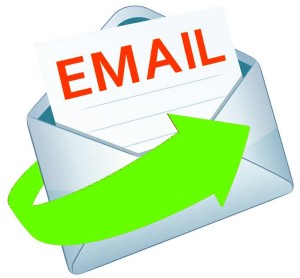 In just the last several months, hackers have leaked emails belonging to some highly influential people — former U.S. Secretary of State Colin Powell, former Democratic National Committee Chairwoman Debbie Wasserman Schultz and Hillary Clinton campaign manager John Podesta – to name a few. Some of the hacked emails contain embarrassing tidbits and became a major theme in the U.S. presidential campaign.
In just the last several months, hackers have leaked emails belonging to some highly influential people — former U.S. Secretary of State Colin Powell, former Democratic National Committee Chairwoman Debbie Wasserman Schultz and Hillary Clinton campaign manager John Podesta – to name a few. Some of the hacked emails contain embarrassing tidbits and became a major theme in the U.S. presidential campaign.
The hacking problem, however, extends far and wide, hitting not only those with influence and power, but plenty of ordinary Americans, too.
In September, for instance, Yahoo confirmed that information associated with at least 500 million user accounts had been stolen from the company’s network in 2014 by what it suspects was a “state-sponsored actor.” The pilfered information may have included names, email addresses and answers to some security questions.
Such high-profile breaches serve as a reminder to take basic precautions when it comes to using email, whether it’s for work or personally. Don’t click on links or open attachments in unsolicited emails unless you have verified the sender’s identity.
Phishing emails — like the one that reportedly allowed hackers to access Podesta’s personal account — often contain links or attachments that can install malware on computers, allowing cybercrooks to get their hands on sensitive personal information, send spam and commit fraud.
Think twice about what you write in your emails, said Davia Temin, an executive coach and crisis manager who has worked with victims of hacks. Many business and government leaders, she said, have long known that they shouldn’t expect privacy with regard to email, which can be subpoenaed in lawsuits or government investigations or land in the wrong hands through forwarding.
“Folks who are in high levels of leadership within corporations or other organizations pretty much know intellectually that they should never put in an email something they wouldn’t want” covered by the media, said Temin. She noted, though, that many still find it difficult to censor themselves.
The Powell hack, like other recent high-profile breaches may have been conducted by parties with ties to the Russian government. The hack revealed that Powell considered Republican presidential candidate Donald Trump a “national disgrace,” Hillary Clinton “greedy” and former Vice President Dick Cheney an “idiot.”
“People, no matter who they are, are human, and their need for self-expression, or to get things done efficiently, is great. They often get caught up in the moment and do things they shouldn’t do,” said Temin.
Like it or not, email messages, particularly work-related, should be innocuous, added Temin. They obviously shouldn’t contain corporate secrets, but snarky remarks about others, lewd comments, angry rants or complaints about the boss are a bad idea also.
More than a few workers, she noted, have been shown the door for writing a boss-bashing email that circulated widely, before somehow landing in said boss’s inbox. It’s also best to assume, noted Temin, that your managers have the ability to snoop on your emails, even if they aren’t actually doing so. “There are all kinds of monitoring devices that companies have on email,” said Temin.
You don’t have to be stilted or old fashioned, but the tone of your emails should be respectful and a bit formal, she explained. Don’t hit send, she added, unless you’ve taken the time to re-read what you’ve written and are fairly confident that you’ve chosen your words carefully.
“Pretty much all of us have to re-read our emails at least once after we’ve written them and think about how they would appear to people who don’t know us and don’t know what we are talking about,” said Temin.